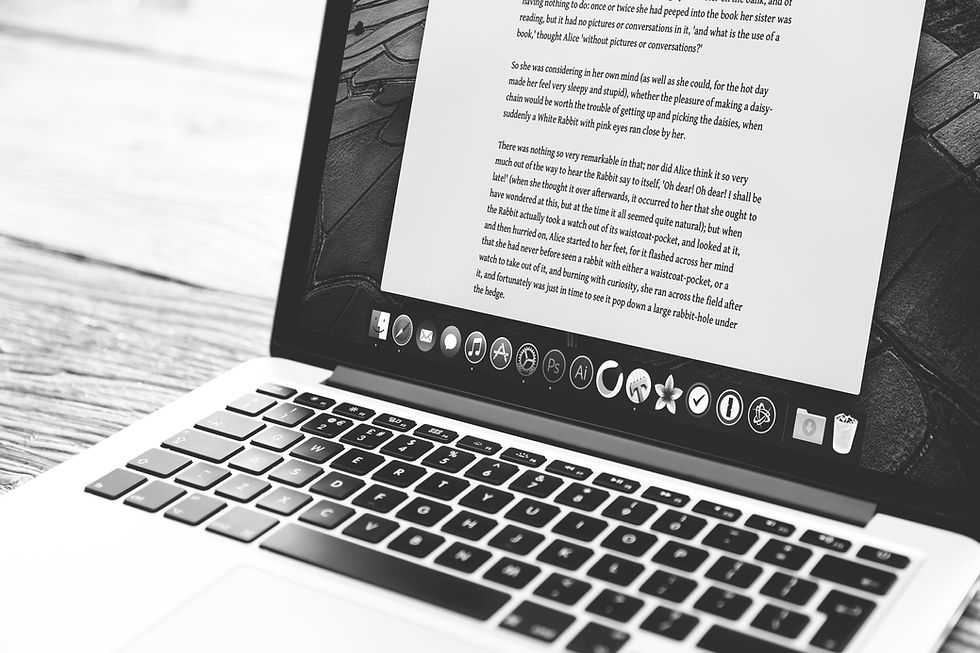How to Write Exposition
- Anne-Marie Frisby
- Aug 22, 2022
- 3 min read

You’re writing chapter one of your spy romance novel, and the protagonist is at a gala. She’s playing a part for her current mission, and she needs to flirt with a famous millionaire. She walks up to him, pretends to stumble, and finds herself in the arms of a handsome man who she recognizes with a shock…. And then the story grinds to a halt to explain that this man is her ex-fiance from college, who knows about her job for the spy agency because he’s from a competing agency, and he may have only ever dated her for information but she’s never been entirely sure, and was he involved in the death of her sister or not? Meanwhile, we the readers are wondering what’s happening next at the gala.
Exposition is when the author explicitly tells the audience background about a character or situation. It is incredibly important that the audience knows enough about the situation to care — if the spy woman trips onto some random man, why should we be invested in what happens? On the other hand, exposition can just as easily take away from a scene when it ruins the verisimilitude. So, how can we write better exposition?

Keep Exposition Appropriate to the Scene
If I were writing the scene with the spy-lady, I would be very tempted to have her just look up into his eyes and remember the key points of their past. She could look up at him and just get lost in the moment… wait, no, she’s on a dangerous mission! People are staring! She should stand up and try to get away from him so she can do her job!
In fast-paced scenes, keep the exposition short and snappy. Your characters wouldn’t be taking the time to think things through, usually, so reflect that in how you present the situation. On the other hand, you can write longer chunks of exposition in slower scenes, when characters are thinking things over. Just remember to keep it interesting, and play around with suspense.

Exposit with Character!
Either have characters explain the background or give your narrator a lot of personality, cause blocks of text are boring. When you have characters explain what is happening, make sure that them talking about this subject to this person makes sense. Maybe the spy-lady is on a team, and one of her teammates hates her guts. That person might be very willing to talk about her sordid past with an enemy agent to the entire team, while the spy herself would keep quiet. Also, characters will give a spin to the situation — spy-lady’s rival will try to make her look bad and her friend will try to lift her up. This makes the exposition far more interesting in the long term, as the readers try to figure out what’s really happening.
If you are writing from a first-person or omniscient narrator perspective, then similar rules apply. Make the narrator funny, cruel, opinionated, or obsessive, but make it interesting to read. Lemony Snicket’s A Series of Unfortunate Events is fun for the most part because the narrator has an interesting and consistent voice, so the reader is willing to read through his exposition.

3) Trust Your Audience!
Sometimes, when you have a very particular idea of how you want a character to seem, you feel like you need to explicitly tell the audience everything. Or maybe you get afraid that the audience won’t understand what is happening if you skip details. Now, you should always ask for a second opinion, but remember — most of your audience will be smart! Trust that your audience can pick up on foreshadowing and implications. Never talk down to your audience, even with children’s books. More often than not, the audience will surprise you with how well they will pick up on your hints. Besides, half of the imagination is in their heads. Your job isn’t to tell them everything, it's to tell them enough that they can fill in the rest on their own. Only exposit when it is necessary to the plot, character, or tone, and let the reader fill in the gaps.

As with most writing tips, you can only really learn how you can best do exposition by writing and editing and rewriting. I know this can be really frustrating, especially if you don’t have anyone to share it with. So, please share your writing with us on Instagram and Facebook! We’d love to see what you’ve created.




Comments